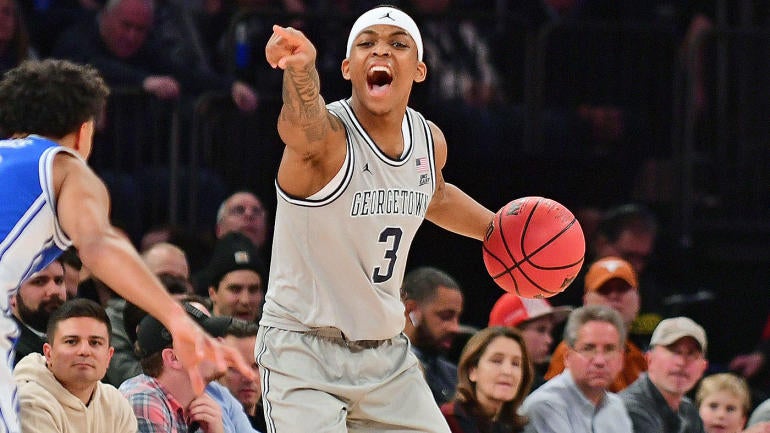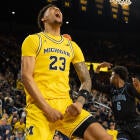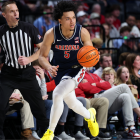Arizona point guard James Akinjo ruled immediately eligible by NCAA after transferring from Georgetown
Akinjo left Georgetown seven games into last season and can play for the Wildcats in their first game this season

Instead of having to wait to be cleared to play until the second semester this season, the NCAA on Tuesday approved a waiver giving immediate eligibility to Arizona junior point guard James Akinjo, a transfer from Georgetown. Akinjo will have two years of eligibility remaining when he takes the court for Arizona this upcoming season.
He was one of the best players in the Big East when he made the abrupt decision last December to leave Georgetown, which lost more than 75% of its minutes and points production in the past nine months due to transfers and dismissals. Akinjo averaged 13.4 points and 5.2 assists in 40 career games as a Hoya.
Itching for more college hoops analysis? Listen below and subscribe to the Eye on College Basketball podcast where we take you beyond the hardwood with insider information and instant reactions.
Akinjo getting cleared is highly significant for Arizona; the Wildcats lost three freshmen to NBA declarations (Nico Mannion, Josh Green, Zeke Nnaji) and four seniors. Arizona will need Akinjo's playmaking in order to compete at the top of the Pac-12 again. He might well prove to be the team's best player as soon as the season begins.
"We are excited to have James eligible for our first game," Arizona coach Sean Miller said. "This is an opportunity that I know he is eager to take advantage of both on the court and in the classroom. He is an impact player and a fierce competitor, and his experience will be invaluable for us this year as we welcome so many young players to our program."
Akinjo committed to the Wildcats on Jan. 1, a month removed from leaving Georgetown. Had he not been granted a transfer waiver, he would have had to sit until the end of the first semester. College basketball's start date remains unknown at this point, but sources told CBS Sports that Nov. 25 and Dec. 4 are the leading candidates, with Nov. 25 being the target as of now.
The waiver approval from the NCAA marks yet another instance this offseason in which a college basketball player who traditionally would have had to sit out due to a redshirt transfer has instead been pushed through by the NCAA. The pattern of decisions on behalf of the NCAA have come amid the coronavirus pandemic and the ongoing push by athletes -- pro and college alike -- across the country to speak up against social injustice and systemic racism.
They've also come in advance of what's expected to be a formality in January, when NCAA legislation will eliminate redshirt transfers for all college players who are transferring for the first time.


















